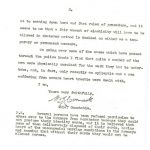The Battle of Britain took a decisive turn this week, as first of all the Luftwaffe’s failure to defeat the RAF caused Hitler on Tuesday 3rd to postpone his planned invasion of Britain until 21 September. And then Hitler and Goering directed German forces to bomb British cities instead of targeting RAF bases as they’d done up till now, and the battle entered its fourth phase: on Saturday 7 September nearly 400 bombers and 600 fighters attacked London (inaugurating what is popularly known as the “Blitz”).
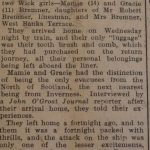
The John o’Groat Journal recounted the dramatic story of two Wick sisters, Mamie and Gracie Bremner, who were on a ship of 320 children being evacuated to Canada when it was sunk by a German submarine. All the children survived (singing “Roll out the Barrel” as they took to the lifeboats), most of them in pyjamas, having been forced to leave all their possessions behind; when Mamie and Gracie arrived home, all they had was a tooth brush and comb, which they’d bought on the way.
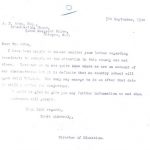
Schools in Caithness were to remain closed until further notice, with German aircraft constantly overhead and the threat of an invasion ever-present. As the Director of Education put it on 5 September, “Even now we do not quite know where we are on account of war circumstances but it is definite that no country school will open until October”.
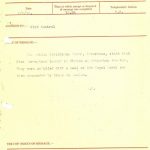 It wasn’t only rescued merchant seamen that landed at Scrabster and Thurso: refugees from occupied Europe arrived there as well. The Caithness Constabulary recorded that, “The Public Assistance Board, Inverness, state that five Norwegians landed at Thurso on September the 2nd. They were supplied with a meal at the Royal Hotel and then proceeded by train to London.”
It wasn’t only rescued merchant seamen that landed at Scrabster and Thurso: refugees from occupied Europe arrived there as well. The Caithness Constabulary recorded that, “The Public Assistance Board, Inverness, state that five Norwegians landed at Thurso on September the 2nd. They were supplied with a meal at the Royal Hotel and then proceeded by train to London.”
Meanwhile, the authorities were faced with the problem of labourers “who go to work in the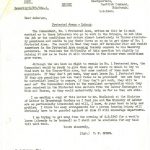 Orkneys, and do not like the work or conditions and return immediately to Thurso absolutely penniless and unable to pay their fares… The result is that they walk off Scrabster Pier and vanish somewhere.” The officials were surprisingly sympathetic to the labourers: “I find that some of the men were physically unsuited for the work they had to undertake, and, in fact, only recently an epileptic and a man suffering from severe heart trouble were dealt with.” (They also noted that some men were suspected of throwing away their permits, “having heard of the uncongenial working conditions in the Orkneys”, so that they wouldn’t be allowed in.)
Orkneys, and do not like the work or conditions and return immediately to Thurso absolutely penniless and unable to pay their fares… The result is that they walk off Scrabster Pier and vanish somewhere.” The officials were surprisingly sympathetic to the labourers: “I find that some of the men were physically unsuited for the work they had to undertake, and, in fact, only recently an epileptic and a man suffering from severe heart trouble were dealt with.” (They also noted that some men were suspected of throwing away their permits, “having heard of the uncongenial working conditions in the Orkneys”, so that they wouldn’t be allowed in.)
